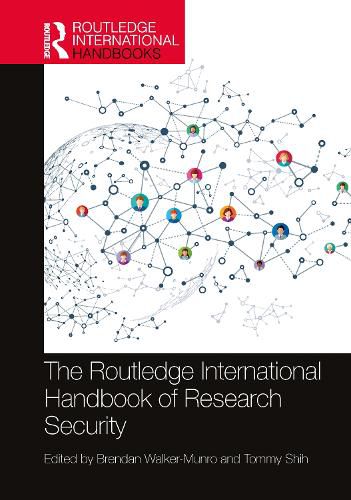Readings Newsletter
Become a Readings Member to make your shopping experience even easier.
Sign in or sign up for free!
You’re not far away from qualifying for FREE standard shipping within Australia
You’ve qualified for FREE standard shipping within Australia
The cart is loading…






The Routledge International Handbook of Research Security examines research security - the act of protecting and securing university research and teaching in the name of national security - through a multi-disciplinary and comparative lens.
In this volume, contributors explore theoretical, domestic, international, and practical pursuits of research security across the globe. Over six parts, the handbook covers topics ranging from the composition of research security programs and frameworks to the futures of research security and academic freedom. Academic experiences of espionage, foreign interference, intelligence, and counter-intelligence operations are discussed to provide international and comparative perspectives on research security. In so doing, the book shows the tensions of finding a middle ground between the needs of national security and the global research enterprise.
Offering a balanced and structured perspective of research security from both academics and practitioners, this handbook is a unique resource for graduate students in fields such as law, security studies, international relations, and strategic management. It will also interest higher education professionals such as research managers and security directors.
$9.00 standard shipping within Australia
FREE standard shipping within Australia for orders over $100.00
Express & International shipping calculated at checkout
The Routledge International Handbook of Research Security examines research security - the act of protecting and securing university research and teaching in the name of national security - through a multi-disciplinary and comparative lens.
In this volume, contributors explore theoretical, domestic, international, and practical pursuits of research security across the globe. Over six parts, the handbook covers topics ranging from the composition of research security programs and frameworks to the futures of research security and academic freedom. Academic experiences of espionage, foreign interference, intelligence, and counter-intelligence operations are discussed to provide international and comparative perspectives on research security. In so doing, the book shows the tensions of finding a middle ground between the needs of national security and the global research enterprise.
Offering a balanced and structured perspective of research security from both academics and practitioners, this handbook is a unique resource for graduate students in fields such as law, security studies, international relations, and strategic management. It will also interest higher education professionals such as research managers and security directors.